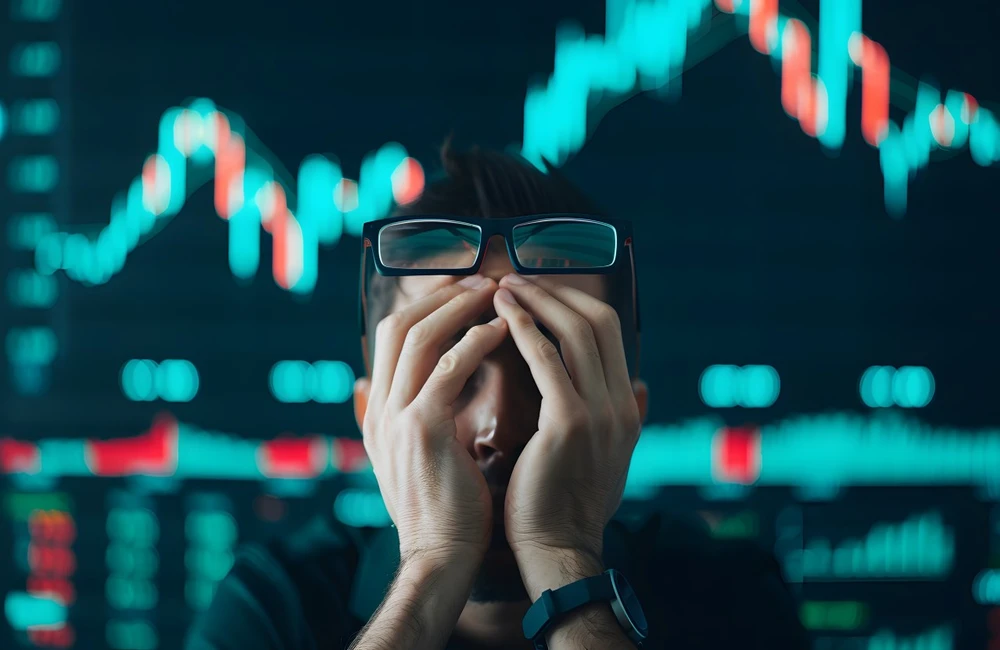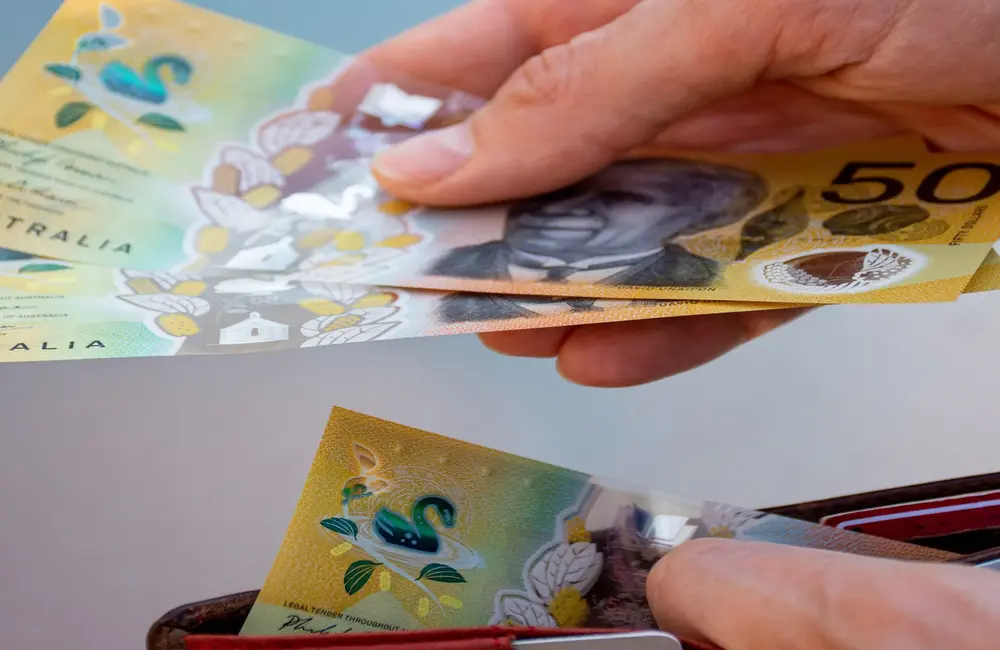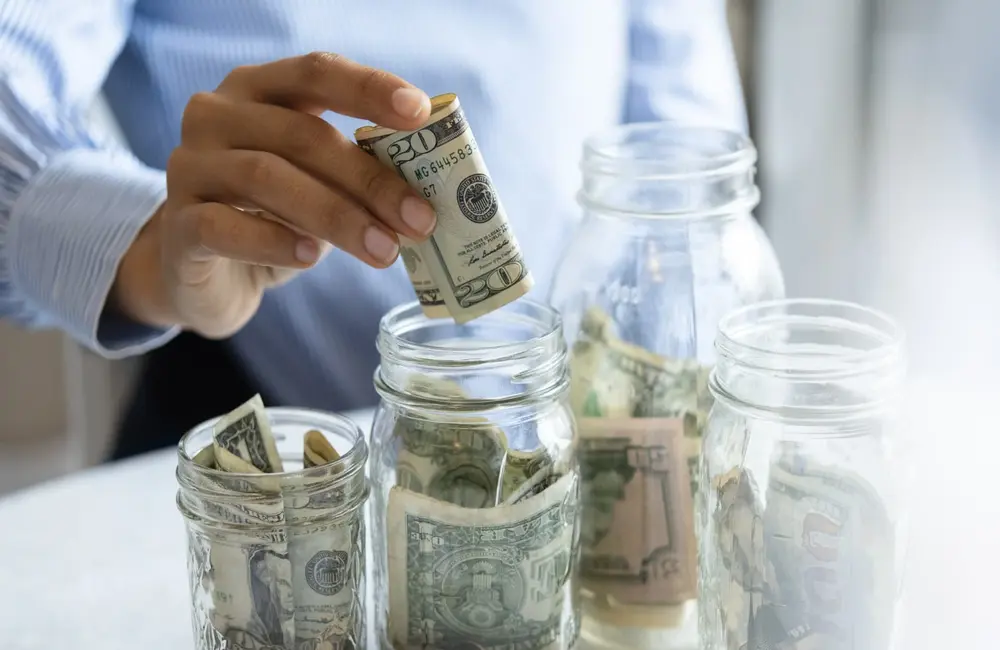Futures fell 25 points or 0.4% to 6522 by 7:00am on Friday, suggesting the market would edge lower at the open.
Shares of U.S. companies tumbled on Thursday, on a mix of worrying economic data and tumultuous movements in the bonds market that have generated turbulence in the broader financial markets and forced investors to wrestle with concerns about a global slowdown once again.
The drops were a rude awakening for investors who had experienced a very brief stock rally on Wednesday. The Dow dropped roughly 456 points, or 1.5 percent, erasing a large chunk of the gains it recorded the day before. The S&P 500 dropped 2.1%. The tech-heavy Nasdaq fell 2.8 percent. All three indexes closed at or near their 2022 lows.
“This round-trip volatility is just breathtaking,” said Peter Bermont, senior portfolio manager and managing director of Bermont Gold Wealth Advisory.
Economic data on Thursday further highlighted concerns about the economic outlook. The Commerce Department reported that the US economy contracted at an annual rate of 0.6% in the second quarter, as previously estimated. Mortgage rates hit their highest level since 2007, a shift that will lock some would-be buyers out of owning homes and force others to pay far more for the same home than they could have just a few months ago.
Commodities: Brent crude oil declined 0.59% to $US 88.79 a barrel, gold was steady at US$1,660.17.
In local bond markets, Australian 2 Year government bonds yields fell to 3.33% and 10 Years to 3.93%. The US 2 Year notes were up to a yield of 4.19% and 10 Year US Treasury notes 3.78% overseas.
The Aussie has been sold off even as the RBA is believed to have rushed to cut its cash rate 25 basis points and as low as just 0.25 percent. The cut took place on the same day the Organisation for Economic Co-operation and Development said the world was on the brink of a pandemic and the same day the Commonwealth Bank dialled back its outlook on how the virus will affect our economy. The Australian dollar dropped as low as 64.94 US cents from Monday's close of 65.19. The Wall Street Journal Dollar Index, which measures the U.S. currency against 16 others, slipped to 103.69.
Asia
Chinese stocks finished mixed, reversing earlier gains, while medical equipment was a bright spot on the exchanges but heavy losses in real estate related companies kept the markets in check. The benchmark Shanghai Composite Index slipped 0.1% to 3041.20 and the Shenzhen Composite Index fell 0.1% to 1937.20. The tech-heavy ChiNext Price Index was the lone gainer, adding 0.8% to close at 2333.00. Gains were led by medical device and equipment manufacturers over hope for government support to the sector. Property developers and managers were among the worst performers Wednesday, having been hit recently by the latest trend of credit hike and hitting the brakes again, which helped erase market gains.
Shares in Hong Kong finished the session down, erasing morning gains to continue a broad decline that has been in place since last week. The benchmark Hang Seng Index declined 0.5% to 17165.87. Chinese property developers were the worst-hit after the sell-off in the sector extended when major player CIFI reported problems making cash distribution on an investment product related to one of its projects. CIFI sank 16% to a record low, Country Garden plunged 12% and Longfor lost 7.5%. Tech was also a drag on the market, with the Hang Seng Tech Index falling 1.2 percent to end at 3482.52, just above some of the lowest close of the benchmark, which was introduced in 2020.
Stocks in Japan rose, driven by technology and pharmaceutical shares, amid some relief over borrowing costs. Rakuten Group rose 6.1% and Shionogi 5.1%. Eisai jumped 14 percent, adding to Wednesday’s 17 percent surge that came after the company’s experimental drug was found to slow the onset of Alzheimer’s disease in a clinical study. The Nikkei Stock Average gained 0.9% to 26422.05.
Europe
European shares dropped as speculation about more US interest-rate increases overwhelmed relief at the Bank of England's moves to calm volatility in the UK markets. The pan-European Stoxx Europe 600, German DAX and French CAC 40 all fell more than 1 percent.
The numbers indicate that the US labour market remains in a good place despite economic headwinds, according to Oanda. “Although that might typically be something to celebrate, in this case the resilience may translate into stubborn inflation and more interest rate hikes,” writes Oanda analyst Craig Erlam.
In London, the FTSE 100 ended Thursday down 1.8 percent, at 6,881.59 points, its lowest since March 8, in a sign of continuing concern about the U.K. government’s fiscal policy.
The U.K. index was lower even though it staged a rebound on Wednesday after the Bank of England moved to bolster the U.K. government debt market. The index’s biggest movers to the downside were fashion retailer Next PLC, down 12%, and online grocer Ocado Group PLC, off 10%, with both stocks stung by record-low levels of consumer confidence in September.
North America
U.S. stocks dropped fast and furiously Thursday as bond-market turmoil in the form of an inversion of the main measure of the yield curve, which has historically heralded economic downturns, fueled a fresh wave of investor angst over risks that the domestic economy could be wobbling.
The drops roiled investors who had just enjoyed a very brief stock rally on Wednesday. The Dow dropped nearly 456 points, or 1.5 percent, and surrendered much of what it gained the day before. The S&P 500 dropped 2.1%. The tech-laden Nasdaq fell 2.8%. The three indexes closed at or near their lows for 2022.
“Wow, that’s pretty breathtaking volatility,” said Peter Bermont, senior portfolio manager and managing director at Bermont Gold Wealth Advisory.
Economic data on Thursday painted a worrying picture of the state of the economy. The US economy contracted 0.6% at an annualized rate in the second quarter, the Commerce Department said, largely consistent with earlier estimates. Mortgage rates climbed to their highest level since 2007, a sudden snap that could price some would-be buyers out of homeownership and increase the mortgage bills of other borrowers significantly.
Even good news wasn’t, in fact, good. The number of Americans filing new claims for state unemployment insurance fell last week, a sign that layoffs are easing as the worst of the pandemic’s early economic impact on labor markets passes. But in the inverted-logic world of Wall Street, some investors said that was also causing markets to fall: Shelter read: A robust job sector would emboldened the Federal Reserve to keep aggressively lifting rates.
“The Fed is doing everything it can to cause pain for the employment market and failing at it. That keeps the story line that the Fed is going to be tighter longer,” wrote David Waddell, CEO & Chief Investment Strategist at Waddell and Associates.
Stocks have been under siege all year. Inflation being at decades-high levels has knocked consumers and businesses for a loop, and the Fed and other central banks are trying to fight it with higher rates. Money managers fret the central banks will go too far and push the economy into recession.
This week’s market turbulence has also been made more severe by the U.K. government’s attempts to reopen its economy. The U.K. government unveiled plans late last week for unfunded tax cuts, spooking markets. The Dow on Monday entered a bear market alongside the S&P, which is a drop of 20% or more from a recent high, and both indexes remained down on Tuesday.
The Bank of England on Wednesday said it would introduce an emergency bond-buying program to help steady the U.K.’s bond prices. It set off a roller-coaster for the benchmark 10-year US Treasury note. Its yield rose above 4 percent for the first time in over a decade, before closing with their largest one-day decline since 2009.
LONDON U.K. Prime Minister Liz Truss alarmed investors with remarks on Thursday that she wouldn’t reverse sweeping cuts to taxes and huge increases in borrowing-funded government spending, despite the turmoil in global financial markets.
“We have had to act and act unilaterally,” Ms. Truss said in her first public comments since the tax proposal was introduced last Friday to the state broadcaster, the British Broadcasting Corp.
“Interest rates are still going up to fight inflation,” Mr. Turner went on. “Even if that entails recession.”
The selloff Thursday was broad, hitting across U.S. stock markets. All 11 sectors of the S&P. 500 traded lower.
CarMax was the largest decliner on the S&P. 500, falling 24 percent after missing earnings estimates by a wide margin. The used-car retailer reported a profit of 79 cents a share for its last quarter, well below the $1.39 that analysts tracked by FactSet had expected. Shares of Bed Bath & Beyond also fell 8.9% after the loss-widening results.

























